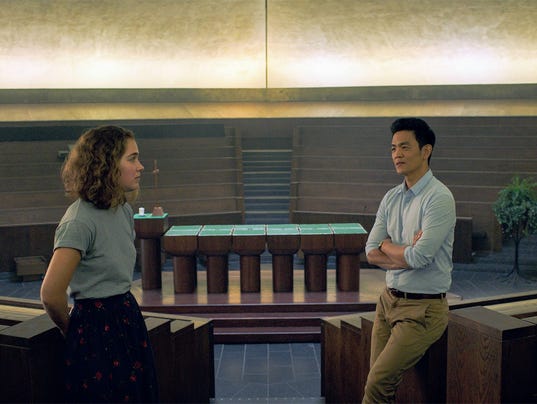Sorry, I missed that signal initially. I'll throw my two cents in now if that's okay. Going on your review, I would say out biggest disagreement is the use of humour in the movie--you wanted more; I thought it was fine the way it was. Two main reasons for my opinion (which also correspond to what I liked most about the movie):I also had difficulty with The Meyerowitz Stories earlier but nobody seemed to want to discuss it so I let it ride. I know it is a good film but I had a lot more criticisms about it than kihei's review. I can see an actor there getting an AA nod (it was such good acting), but if the movie gets nominated for other than that, I'll give my head a shake. And I like Noah Baumbach.
1. I thought where the audience entered the story was intriguing and fresh. Usually with dysfunctional family movies, we watch as the family goes off the rails. In the case of The Meyerowitz Stories by the time we get there, that has already happened. We are not looking at the break down; we are looking at the aftermath of that breakdown. People are worn out by the situation, but they still have to get through the day and live with themselves and come to grips with one another, past or no past. To me there is not much room for humour there, especially when the patriarch responsible for all these hurt feeling is slipping ever closer to death. Again, that would generate a lot of complex feelings, probably none of them believably humourous.
2. Often is these sorts of Sundance-y movies, humour is used as a balm, something to relieve the unhappiness or confusion or grief, whatever it is that is bedeviling the characters. I liked that this movie didn't try to soften the seriousness of what it was looking at with gratuitous bits of humour. To me to do so would compromise the power of what we see portrayed which is that all three siblings are leading lives of desperation on some level. I just don't think such humour would have rung true and that would have wreaked havoc on my suspension of disbelief. There is seldom much humour in an Ingmar Bergman movie, and while The Meyerowitz Stories is not an Ingmar Bergman movie, it deals with similar kinds of emotionally traumatic experience that arise in many Bergman films. In short, I thought Baumbach found the tone that best suited his movie and its characters.
Anyway, that's my two cents. I would be interested in hearing your take in greater detail
Last edited:





